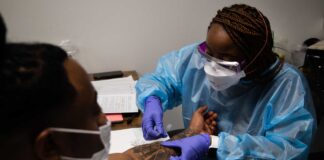In the US, it has become crucial to provide patients with top-notch care regardless of their gender or sexual orientation, particularly gay and bisexual men.
Diana K. Bowen, MD, recently gave an interview in which she discussed vital points from the conversation at the 2022 LUGPA Annual Meeting.
The topic of the discussion was Appreciating Diversity in Urology Care. Bowen teaches urology as an adjunct professor at the Feinberg School of Medicine at Northwestern University. Bowen discussed emphasizing strategies for integrating any gender-diverse patient into practice when the sources interviewed her.
In addition, Bowen offered some advice on how to ensure that patients have a positive experience when receiving medical care, both in the context of the general clinic and for any urologic complaints that patients may present with unrelated to the bottom surgery topic that is so popular.
LGBTQ People Have Significant Urologic Care Requirements
Members of the LGBTQ community have not yet benefited from the laws and healthcare advantages. There are general problems with insurance and access, particularly for individuals who identify as transgender or gender nonconforming.

In addition, 30% of patients report having had a bad encounter with the medical system. However, people are entering a period where access to insurance and healthcare has significantly improved.
As cultural acceptance rises, more people will seek medical care, which will benefit the medical profession.
The population’s health will increase as more entry obstacles are eliminated by the healthcare system. When it comes to pronouns, preferred names, and acceptable terms, as well as insurance or a person’s degree of comfort, hs to be incorporated by the healthcare system.
Additionally, Bowen provided several important lessons that should be applied while working with LGBTQ patients. The first piece of advice is never to assume anything about any patient. When dealing with such patients, the health professional should only inquire about their past and request their pronouns.
She insisted that the staff be taught to speak to patients in a way that is affirming and to recognize that patients who identify as gender nonconforming have historically had numerous particular challenges to receiving medical care.
Therefore, it is much more crucial to offer an egalitarian experience. Bowen suggested that there are multiple resources available to learn from and train from to incorporate these ethical practices.
LGBTQ+ Care Delivery Initiatives In Urology Recent Times
The human experience is fundamentally shaped by sexual orientation and gender identity. Historically, there have been widespread disparities in access to jobs and healthcare for persons who identify as sexual minorities.
The knowledge of these concerns and advocacy activity has grown due to shifts in social standards and the cultural environment. However, urological problems affecting sexual minorities have received less scientific attention and have not been the focus of many legislative initiatives.
A summit was held several years ago by multidisciplinary faculty at the Memorial Sloan Kettering Cancer Center in New York to create a national action plan for the needs of the LGBTQ+ community regarding malignancies.
Urologists are exceptionally qualified to offer our LGBTQ+ patients top-notch healthcare because they are specialists in hormone therapy.
The urologists assist patients with confidential and intimate clinical difficulties daily. Creating a pleasant and supportive professional atmosphere that builds trust and rapport is critical to success.
According to epidemiological studies, men and women who identify as sexual minorities may have similar rates of sexual health issues as heterosexuals.
Gender affirmation surgery is becoming more common among reconstructive urologists, and urology residency and postdoctoral curricula now formally teach it as part of their formal curricula.








